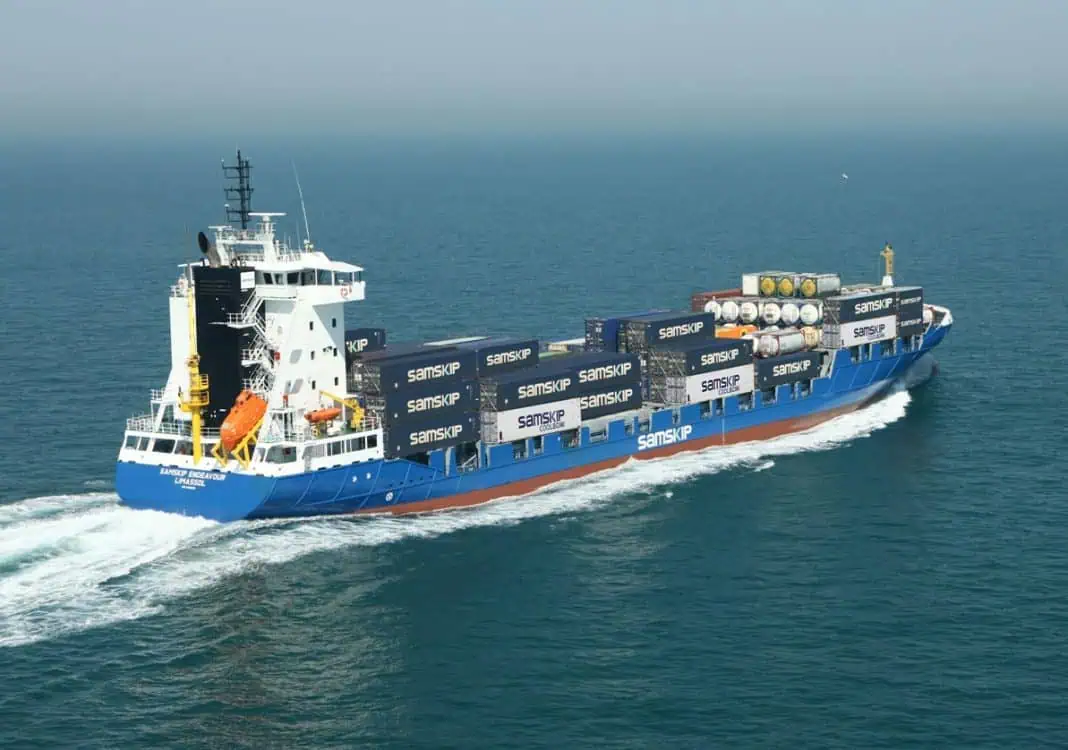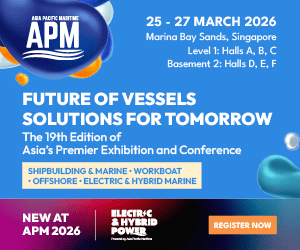New agreement with GoodFuels consolidates position of biofuels as key component in Samskip’s strategy for decarbonization in shipping
Samskip has extended its commitment to sustainable biofuels in shortsea shipping operations, calculating that it will make 45,000 tonnes in additional CO2 emissions savings before the year is out as a result.
The leading European multimodal group has signed a new agreement with supplier GoodFuels, committing the Samskip container ships Endeavour, Innovator, Hofell and Skatafell to run on marine grade bio-residual fuels.
Offering a drop-in replacement that cuts 90% cuts off the CO2 emissions generated by conventional fuel oils, GoodFuels MDF1-100 biofuel is formulated entirely from sustainable waste streams from the EU’s Renewable Energy Directive list. It has also earned International Sustainability and Carbon Certification.
“Sustainable marine biofuels offer a viable way for Samskip to cut CO2 emissions by 90% so that our ships and freight customers reduce their carbon footprint in the interests of the planet,” said Erik Hofmeester, Head of Vessel Management, Samskip. “It would take the equivalent of 1.7 million trees to offset this amount of CO2 emissions.”
“As part of Samskip’s relationship with GoodFuels, freight owners also become part of a scheme where the lower ocean carbon footprint is auditable as carbon credits in the supply chain,” added Hofmeester.
Following biofuel trials in 2019, Samskip began running main engines onboard the 800-TEU Samskip Endeavour as a routine part of services between the Netherlands and Ireland. The company extended terms to include Samskip Innovator on the Netherlands-UK service last year, before adding Samskip Hoffell and SamskipSkatafell on the Iceland-UK-Netherlands route in 2022. Bunkering for all four ships takes place in Rotterdam.
Initially using a biofuel blend which achieved a 30% CO2-reduction, more competitive pricing enabled Samskip to integrate a 100% biofuel from 2021 and achieve the 90% reduction. The IMO has a 2030 target to cut greenhouse gas emissions from ships by 40%, with a 50% cut envisaged for 2050, but Samskip recently set its sights on ‘Net-Zero’ by 2040.
“Verifiable performance is proving to be a key advantage for sustainable marine biofuels as a drop-in replacement for conventional oils,” said Max Verloop, Marketing Lead, GoodFuels. “Clearly, several solutions are required to decarbonize shipping overall, but biofuels are proving their case on scalability – one of the key challenges facing any low carbon fuel alternative.”
Hofmeester said that biofuel performance had been “excellent, without exception”. Positive cooperation with Flag, Class and national authorities, ship managers and crews had proved pivotal in the acceptance of the fuelling alternative on a licensed basis, he added.
In June, IMO’s Marine Environment Protection Committee published a new “Unified Interpretation” which makes the first explicit acknowledgement that marine biofuels satisfy the requirements of MARPOL (The International Convention on Marine Pollution).
Negotiations are already underway covering a 2023 GoodFuels supply contract. Hofmeester said one scenario involved extending the agreement to chartered vessels













